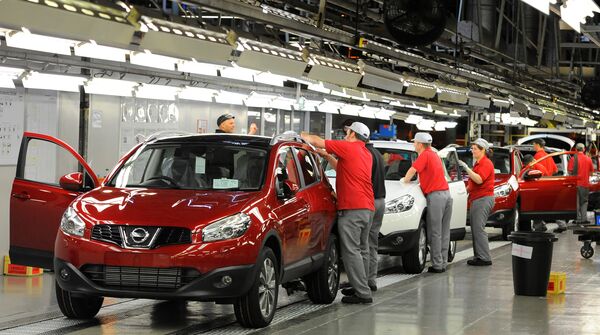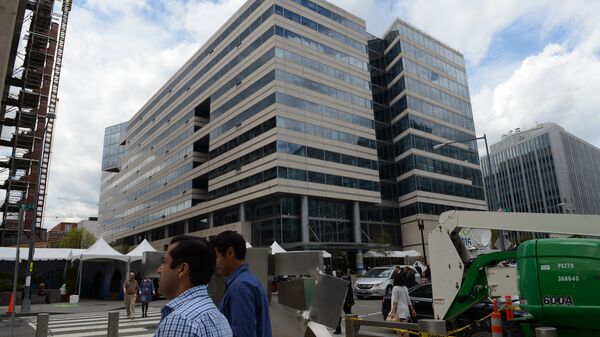The International Monetary Fund (IMF) has warned of the worst global economic growth since the 2008 financial crisis in its latest forecast for 2019.
In its World Economic Outlook, the IMF reduced its growth forecast to 3% for 2019, "its lowest level since 2008–09 and a 0.3 percentage point downgrade from the April 2019 World Economic Outlook".
The dismal prediction comes amid increased trade barriers and conflict, especially between the world's two major economic powers - China and the US, who are currently locked in an embittered trade war.
The fund identified the conflict as one cause of the slowing growth, as well as "macroeconomic strain" on emerging and developing economies such as in Latin America, which since the crash have aided in global economic recovery.
However, the report did offer some more positive news for 2020, projecting a "pick up to 3.4 percent in 2020" due to "improvement in economic performance in a number of emerging markets in Latin America, the Middle East, and emerging and developing Europe".
Gita Gopinath, the IMF's chief economist, said: "The global outlook remains precarious with a synchronised slowdown and uncertain recovery. At 3% growth, there is no room for policy mistakes and an urgent need for policymakers to support growth. The global trading system needs to be improved, not abandoned".
"Countries need to work together because multilateralism remains the only solution to tackling major issues, such as risks from climate change, cybersecurity risks, tax avoidance and tax evasion, and the opportunities and challenges of emerging financial technologies", she added.
Ms Gopinath also warned against a no-deal Brexit, claiming it could seriously limit UK growth: "Heightened trade and geopolitical tensions, including Brexit-related risks, could further disrupt economic activity, and derail an already fragile recovery in emerging market economies and the euro area".
The report stressed that to avoid such an outcome, governments should aim to reduce trade barriers, but also provide key public economic investment and support: "policies should decisively aim at defusing trade tensions, reinvigorating multilateral cooperation, and providing timely support to economic activity where needed".

This comes as the Bank England projects the UK's lowest productivity in five years in the second quarter of 2019, blaming uncertainty regarding Brexit and businesses not investing in technology or software.
Nissan warned that a 10% tariff increase following a no-deal Brexit may see it become "unsustainable" to maintain a manufacturing base in the UK.
Recent developments of a partial agreement last week between the US and China and the delaying of tariffs on Chinese imports originally scheduled for 15 October may indicate that the recommended lifting of trade restrictions could materialise, despite no agreement outline currently existing.
China and the US remain locked in a trade war, based on accusations by the Trump administration that outsourcing and "unfair" behaviour on the part of China has led to the loss of jobs in the US, particularly manufacturing jobs. Meanwhile China has adamantly rejected these assertions, claiming that the US is resisting legitimate competition.




